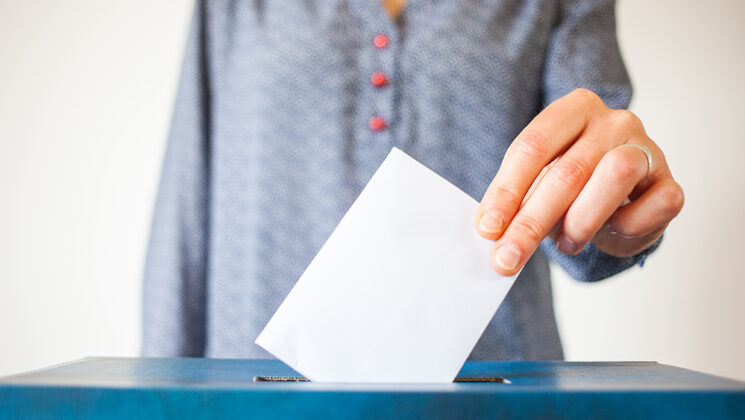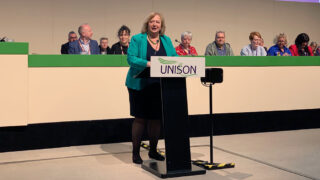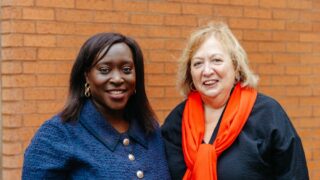This is a milestone year for democracy. Four billion people, more than half of the world’s population, will go to the polls in 2024. It is the first time so many have been able to exercise their vote in a single year.
Clearly not all of these elections are what they seem. Some do not come anywhere near passing the democracy test – and cannot be described as free and fair elections.
In Russia, for example, Putin has just been re-elected as president, having changed the rules enabling him to stand again, despite having been de-facto leader since 2000 and Russia having a system that supposedly limits presidents to two terms.
His political opponents had been thrown in jail or murdered and there were news reports of people being coerced into voting. Unsurprisingly, Putin was re-elected with 87% of the vote.
In many respects this is a stark reminder about the value of our own democratic system.
Many would say it’s not perfect. And there are, of course, strong arguments that some types of proportional representation would be fairer and deliver more representative results if they were used more widely. There are also arguments that the franchise should be extended so that more people can vote (16-year-olds can vote in Scotland – but not for general elections).
However, on most objective measures, UK elections are free and fair and, this year, UNISON members across the UK will be able to cast their vote in at least one election. Many of us will get to vote multiple times.
On 2 May, elections take place for police and crime commissioner elections in England and Wales. On the same day, there will be elections for mayors in London and other combined authorities, and for local councils in England.
A general election is also due. Although this can technically be held as late as January 2025, it is highly probable that it will take place in the summer or autumn.
If that wasn’t quite enough, there are also internal elections taking place that members should be aware of and, of course, take part in. Elections for UNISON’s service group executives taking place between 22 April and 17 May. And then in the summer (dates to be confirmed) members will get to take part in the 10-yearly political fund ballot.
Participation and legitimacy
Participation in elections is crucial. Engaging with parties and candidates, knowing what they stand for, and a high turn-out at the ballot box give the candidates and the system as a whole legitimacy. Although there are lots of distractions – not least everyday life – we should not forget that our participation and the legitimacy it bestows is a key ingredient of democracy.
Be sure you’re registered to vote
In the UK it is not necessary to re-register for every election. However, if you have moved since the last election you will be required to register.
To vote in person in the forthcoming local elections on 2 May, you must be registered by 11:59pm on Tuesday 16 April.
This can be done online here with your national insurance number or by writing to your council’s electoral registration office.
If you’re already registered, then you can request a postal vote by 5pm on Wednesday 17 April via the Electoral Commission.
Deadlines for registering for the general election will be published once the date is known. These are usually the Tuesday and Wednesday two weeks out from polling day. You do not need to wait for the election to be called – you can register anytime.
New voter ID requirements
Voters now need to show photo ID in order to vote in person.
There are 22 forms of ID, including passports and driving licences, that are deemed acceptable.
Anyone registered to vote without the correct ID – or who no longer looks like their photo – can apply for a free voter authority certificate, before Wednesday 24 April.
UNISON continues to campaign against this new requirement believing it is blatant voter suppression. Although the government claimed that it was necessary to tackle voter fraud, this has not been a problem in the UK.
When the requirement was first trialled at local elections in 2023, those who were most likely to be turned away from the polling station were young, Black or disabled. Student ID cards and young persons’ rail cards are not deemed acceptable forms of ID.
Although UNISON hopes to see this requirement scrapped, it’s important in the meantime to make sure we take ID with us if we are voting in person.
Spread the word
Are your friends, work colleagues and family members taking part in the elections on 2 May? If they are UNISON members, do they know about the service group elections?
There is only one way to find out. Ask them – and encourage them to get involved. 2024 is the year to make all our votes count.







Great advice about the Voter Authority certificate. A lot of elderley people no longer have driving licences or passports. Equally important that only those that are legitimate can vote. Our democracy is precious.
Last year I was able to order Voter Authority Certificates for both me and my brother, as neither of us has a passport or driving licence and don’t yet qualify for any over 60s ID. It was a quick easy process and we got our certificates a few days later.
I spoke about this at our branch AGM, and again I encourage anybody who needs one to get it as soon as you can. Every vote counts. Make sure yours does too!
I think those Voter Authority Certificates are a good idea especially if someone is homeless without I.D or in the process of gaining certification although of course did not agree with the system in the first place but never the less good news Margaret.